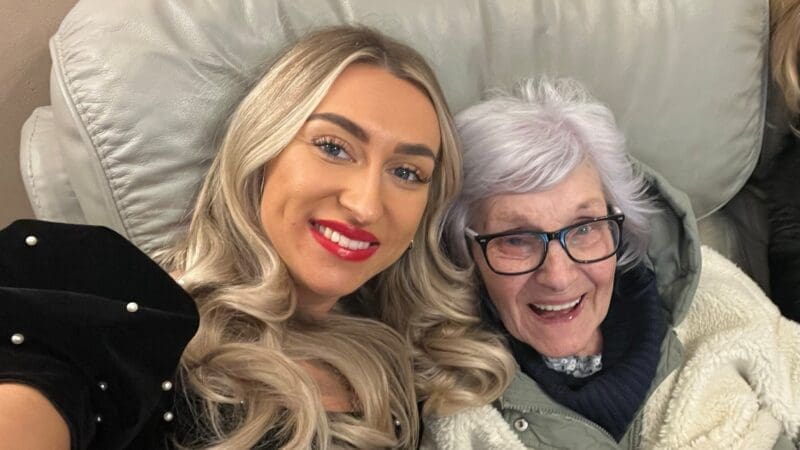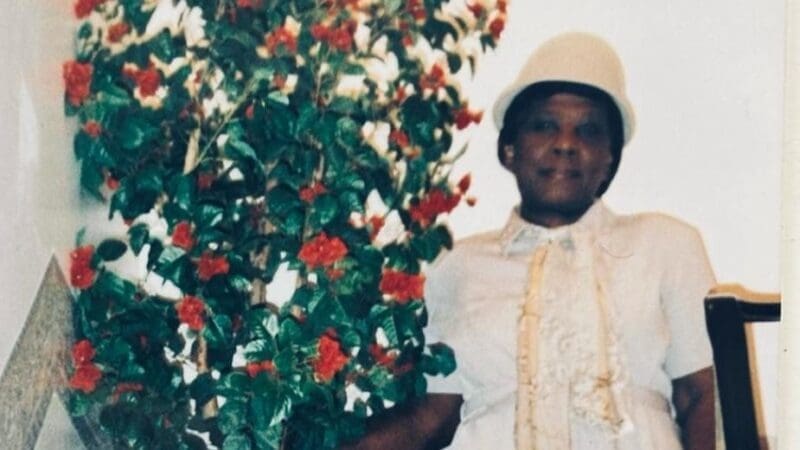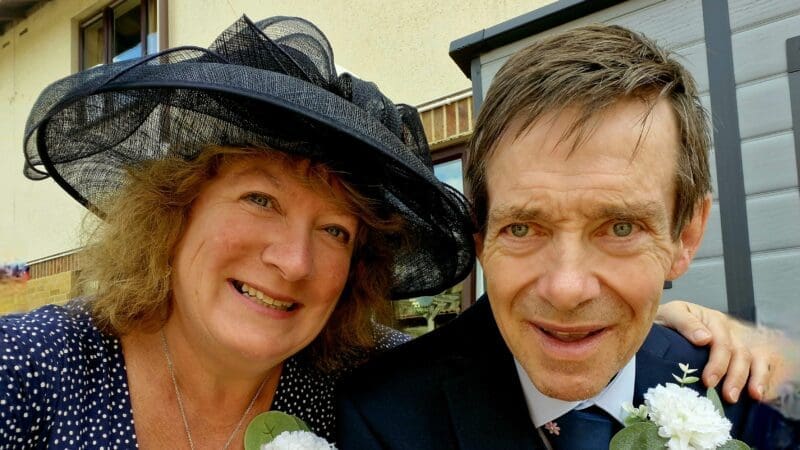
Nat’s story – “Being a young carer can be lonely”
Nat reflects on her experience of being a young carer and the support she received from the Nationwide dementia clinic.
People with dementia may not always recognise when they are thirsty or be able to express their thirst. This may mean that they do not drink enough, resulting in dehydration.
On this page, our dementia specialist Admiral Nurses explain the importance of good hydration and how to prevent dehydration in a person with dementia.
Dehydration is common in people with dementia. There are a range of reasons they may struggle with drinking enough – and if they are dehydrated, their dementia symptoms may appear worse. Even mild dehydration can make a person’s cognitive function fall by 10%, making them more confused.
People with dementia may be more prone to dehydration. Reasons include:
The symptoms of dehydration will depend on the severity, so it’s important to know what to look out for.
Signs of mild to moderate hydration include:
If any of these symptoms occur, you can try the tips below. If they do not improve, contact the person’s GP or phone NHS 111 for advice.
If the person has any of these signs of severe dehydration, they may need immediate treatment. You should request an urgent GP appointment, take them to A&E or call 999 for an ambulance.
It can be hard to tell whether a person with dementia is dehydrated, not least because they may not be able to identify or express that they are thirsty. In addition, many of the symptoms of dementia and dehydration – such as confusion and mood changes – can overlap.
However, if you notice any of the signs and symptoms above, or if the person’s dementia seems to have worsened suddenly, try to encourage them to increase their fluids using the steps below. If there is no improvement, please consult a medical professional.
Everyone will experience dementia differently, so finding ways to keep the person hydrated is likely to involve some trial and error. However, you might like to try these tips:
Helping a person with dementia stay hydrated often depends on finding a drink that they enjoy.
Never force a person with dementia to eat or drink as this can cause distress and pose risks, such as choking. Try to keep calm and use the tips above – you may need to try different strategies before finding the ones that work. If either of you is becoming frustrated or distressed, stop and try again later.
If the person with dementia consistently refuses fluids, speak to their GP to rule out any medical issues and explore options for extra support – for example, a referral to a speech and language therapist if the person has difficulty swallowing.
Be aware that as a person nears the end of life, it is likely that they will naturally become less interested in food and drink. Please see ‘Hydration at the end of life’, below.
Jelly Drops are sweets that are designed to improve hydration for people with dementia who struggle to drink. They are 95% water and also contain electrolytes and vitamins to help with hydration and nutrition. They are designed to have an appealing flavour and texture to make them enjoyable and easy to eat.
If the person with dementia has problems with swallowing, for example choking on food or fluids or coughing as if their drink has ‘gone down the wrong way’, contact their GP. They may refer the person to a speech and language therapist, especially if there are safety concerns around choking.
As a person with dementia nears the end of their life, their body no longer has the same need for food and drink. They may have less interest in food and drink and eventually stop eating and drinking completely.
Giving fluids through a drip or feeding tube can cause distress, so at this stage, it is often better to focus on offering drinks for comfort and enjoyment rather than hydration.
While this is an upsetting stage for carers, it’s a natural part of the dying process. You can ask the person’s GP or district nurse for support to keep the person comfortable, for example from a Palliative Care Team.
Read more about recognising the end of life.
To speak to a dementia specialist Admiral Nurse about hydration or any other aspect of dementia, please call our free Dementia Helpline on 0800 888 6678 (Monday-Friday 9am-9pm, Saturday and Sunday 9am-5pm, every day except 25th December) or email helpline@dementiauk.org. Alternatively, you can pre-book a phone or video call with an Admiral Nurse.
Our virtual clinics give you the chance to discuss any questions or concerns with a dementia specialist Admiral Nurse by phone or video call, at a time that suits you.
If a person with dementia is dehydrated, it’s best to focus on increasing fluid intake through offering regular drinks and watery food. However, if the person is vomiting, has diarrhoea or a high temperature that may be contributing to dehydration, speak to a medical professional. You may wish to seek advice from your local pharmacist about whether oral hydration solutions (tablets to mix with water) might help.
While tea and coffee shouldn’t be the primary form of hydration, offering them throughout the day alongside other options can help with keeping someone hydrated. Bear in mind that because tea and coffee contain caffeine, they may contribute to sleep problems, which many people with dementia experience. Try to avoid caffeinated drinks in the evening – you could try switching to decaf versions.
Dehydration can worsen some symptoms of dementia, including confusion, and can make the person more prone to falls and infections. These can increase the risk of the person being admitted to hospital and developing delirium, which can lead to their dementia symptoms appearing worse.

Nat reflects on her experience of being a young carer and the support she received from the Nationwide dementia clinic.

Tim reflects on the stigma that is often attached to dementia and the importance of the Black, African and Caribbean Admiral Nurse clinics.

Katrina reflects on the support she has received from her Admiral Nurse, Rachel, since her husband was diagnosed with young onset dementia.